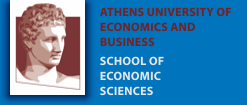| Authors |
Akinsete, E., Velias, A. and Koundouri, P. |
| Title |
Integrating Experimental Economics and Living Labs In Water Resource Management |
| Abstract |
The ultimate goal of water resource management is the efficient allocation of increasingly scarce water resources. One of the most crucial and often obscure aspects of water resource management pertains to the behavioural particularities of the societal relationship with water; how people value the resource, how utility companies price the resource, and how policy makers derive financial instruments to address social dilemmas associated with common pool resources and public goods. This chapter explores the use of two complimentary approaches to derive both quantitative and qualitative data within an iterative process to provide evidence-based decision support in the sustainable management of water resources. Within this integrated approach, participatory Living Labs use small focus group settings to collect qualitative data about key phenomena. This qualitative evidence provides foundation for theoretical models that produce testable suggestions for economic experiments. The economic and behavioural experiments focus on gathering quantitative data to test a prediction, subsequently raising further questions - such as heterogeneity of behaviour, causal relationships between factors - that can be explored deeper by living labs qualitative angle. The Living Labs and Experimental Economics approaches have an iterative relationship, examples of which will be highlighted in this article. |
| Creation Date |
2023-01-03 |
| Keywords |
Water, Living Labs, Experimental Economics, Stakeholder Engagement, Participatory Approaches |
| File |
2023.EXPERIMENTAL.ECONOMICS.LIVING.LABS.pdf (313674 bytes) |
| File-Function |
First version |
|
Copyright © 2009 [D.I.E.S.S. A.U.E.B.]. All rights reserved.
|

